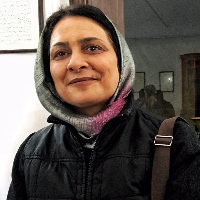Cognitive and behavioral analysis of decision making: optimization and institutional decision making
Orthodox microeconomics decision-making models are based on optimization but in the real world, most of decisions are institutionally and based on habits, rules and predetermined solutions. In this paper we have combined some concepts from cognitive-behavioral economics and new institutional economics to characterize institutional decision-making. Evidences from cognitive and behavioral economics show that the mental costs of direct optimization, even in simplest forms, are high and agents tend to make decisions institutionally to reduce this mental costs. Coase and Williamson argue that "non-zero transaction costs" can result “hierarchy” replaced instead of “market” and similarly we argue that "non-zero decision making costs" can result “institutional decision making” replaced instead of “direct optimization”. Religious behavior is a kind of institutional behavior (following religious rules and habits) and considering this view that institutional decision making and direct optimization both are important and both have distinctive roles in decision making process can influence microfoundations of Islamic economics.
-
The Relationship between Cognition and Financial Behavior from Friedrich Hayek's Perspective
*
Metodology of Sicial Science and Humanities, -
Analysis of the role of foreign trade structure on economic growth in selected countries using PCSE and FGLS methods
Ahmad Suhail Wasiq, , Hoda Zobeiri, Shahryar Zaroki *
Journal of Economic Policies and Research, -
Volatility Spillover during the Covid-19 Crisis: A Comparative Comparison between Islamic and Conventional Financial Instruments
Monire Hamedi Rostami, Mohammadtaghi Gilak Hakim Abadi *, , Saeed Rasekhi
Macroeconomics Research Letter, -
Quantum Holistic Phenomenological Approach; a New Perspective to the Institution and Institutional Changes
Mohammadtaghi Gilak Hakimabadi *, Aboozar Moradi,
Metodology of Sicial Science and Humanities,



